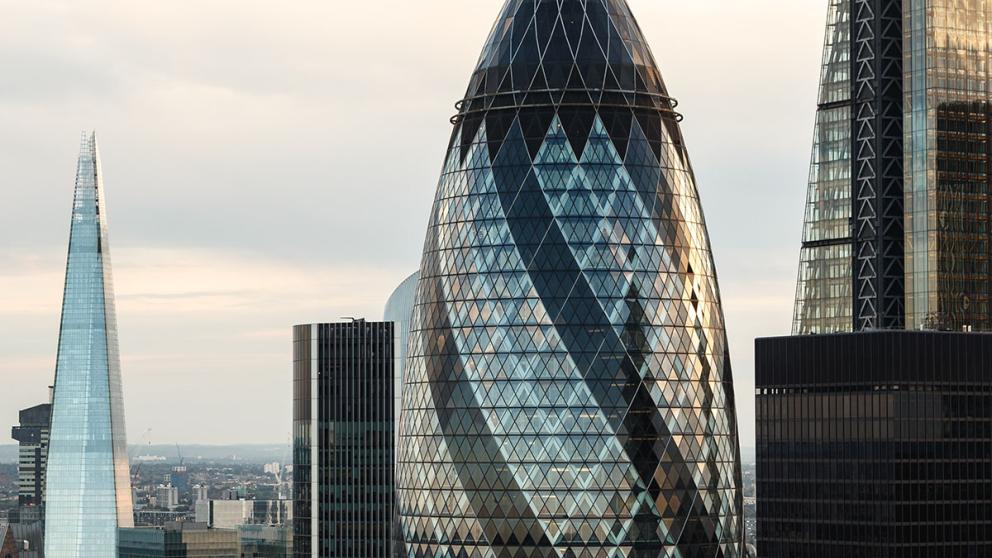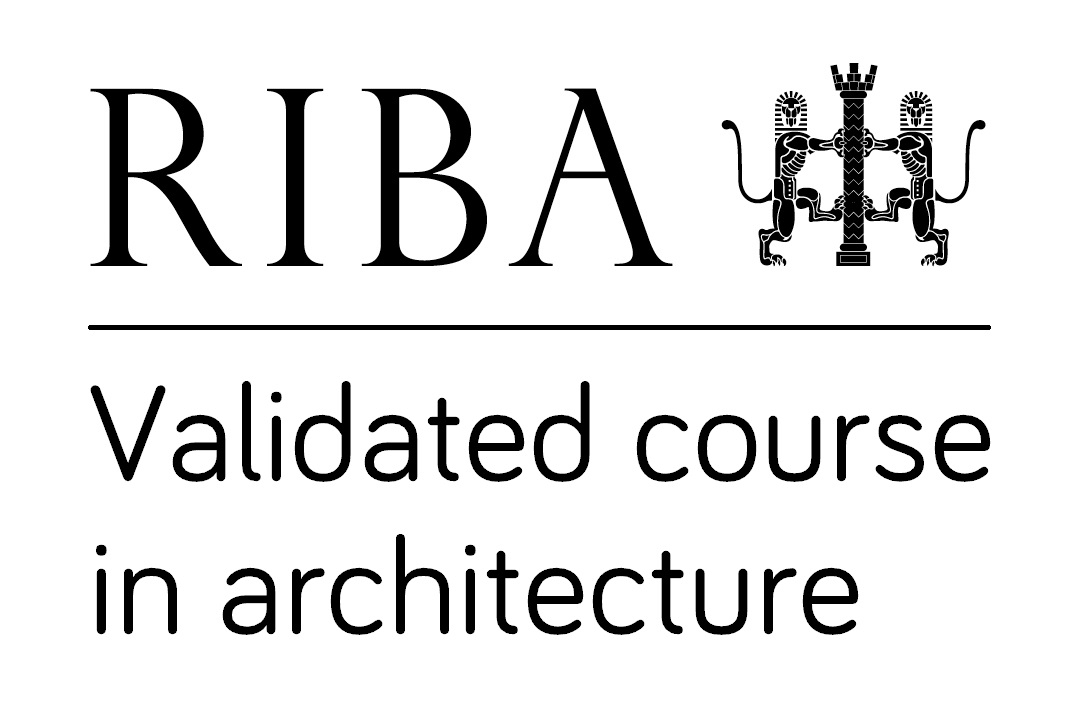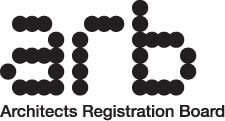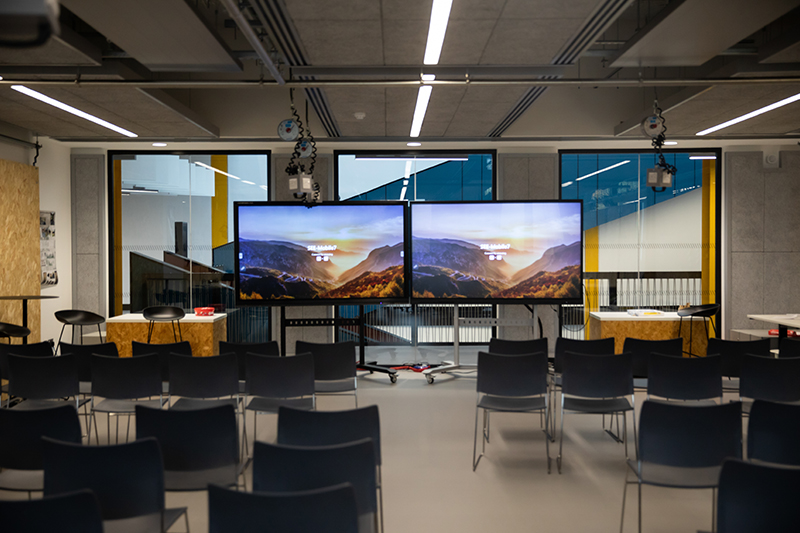
Architecture
Full-time
Three year
September 2026
In a nutshell
Architects are responsible for questioning and reflecting on how we use buildings and the spaces around them to propose alternative and effective models for living.
Our three-year BSc (Hons) Architecture degree is carefully designed to nurture your development as a designer and equip you with the critical thinking skills needed for practice. With validation from the Royal Institute of British Architects (RIBA) and the Architects Registration Board (ARB), this course is the first step to pursuing a career in Architecture*.
Design activity is central to our programme. You will make full use of our individual creative skillset to learn to develop proposals for complex, multi-dimensional and cross-disciplinary, spatial problems. You will use design thinking to consider and explore the global challenges faced by society, including decarbonisation, decolonisation, and the effect of emerging technologies and their implications for built environment use and performance.
Studying an undergraduate Architecture degree at Salford offers the unique opportunity to practice your design skills through engagement with live projects and by prototyping and testing using our cutting-edge digital design and fabrication facilities. You will have the opportunity to experiment with all forms of design processes from hand drawing to model making. Opportunities to engage with live projects, from site visits and collaborative, cross-disciplinary working scenarios, will prepare you for professional practice and encourage you to consider the future of the architectural profession.
*The ARB is revising its requirements for registration and is removing the award of an undergraduate qualification in architecture as a requirement. The intention of the ARB is that its prescription of Part 1 qualifications will cease on 31 Dec 2027.
If you graduate in June 2028 or later, you will be affected by the change and your degree will not be a prescribed ARB award. This will not impact your ability to complete your qualification as a UK registered architect, as the ARB will continue to accredit academic awards at master’s level only.
The BSc (Hons) Architecture degree is currently, and will continue to be, subject to validation by the RIBA (Royal Institute of British Architects) at Part 1.*
Start your study journey
Register for our next Open Day to learn more about studying Architecture, explore our facilities and meet the course team
You will:
- Develop skills in design thinking and creativity to solve complex problems
- Explore the relationship between form, space, material and tectonics
- Study urban conditions, histories, theories and methods
- Be introduced to professional and regulatory frameworks
- Practice verbal and visual communication skills for design development, project management and leadership
students accepted
Course accreditations


This is for you if...
You want to be involved in shaping the future of the built and urban environment through a professionally accredited degree with strong links to industry and practice
You want to develop transferable skills in critical thinking, visual and verbal communication to tackle complex global societal challenges, such as climate change.
You want the opportunity to develop, propose, test, and explore material and spatial practice, using cutting edge facilities while working on live projects.
All about the course
Course delivery
Located in the School of Science Engineering and Environment Building on the Peel Park campus, the BSc (Hons) Architecture degree at Salford is a short walk from the heart of central Manchester. This gives us the opportunity to engage with Manchester and Salford as vibrant, creative locations which provide context for exploration and design propositions.
Reflecting the University of Salford’s strategy to prepare its students for the future, we offer a studio environment for research-led and industry-focused experiences. Our academic team draws on close industry partnerships to deliver guest lectures, live projects, workshops, networking and employability events and opportunities to collaborate with world-leading research groups and facilities. We offer all our graduating students the opportunity to design and showcase their work at the end of year Degree Show, to which we invite prominent regional and international practices.
Learning experience
With our enviable location at the heart of buzzing central Manchester, our expert academic team draws on close industry partnerships to bring you guest lectures, networking opportunities and local architectural projects that will support your knowledge and skill progression.
Based at our green Peel Park campus, we use our strong industry links and fascinating studio-based learning experience to ensure you study in an inspiring engaging way. You’ll have the opportunity to tackle live briefs, sketch ideas and make models as you fill your Instagram feed with impressive local architecture. Receive an immersive, rewarding experience at Salford where you can showcase your design skills at our degree show.
Read about student Matthew's study experience at the university.
End of Year exhibition
Our students have the opportunity to exhibit their work every year in the Salford Laboratory of Architecture's End of Year Show. You can explore the work of the 2024-25 cohort in the Salford Laboratory of Architecture Catalogue.
Design Studio 1A
You will be introduced to architectural thinking and the implications of the relationships between people, environment and place through creative and engaging small-scale design projects. Through the projects you will practice a wide range of architectural representation techniques, from orthographic drawing to model making.
History and Theory 1
You will be introduced to the canon of western architectural history and its underlying ideological assumptions. The module locates the major practices and sites of western architecture in a wide visual, cultural and ideological context and critically examines its relevance to the practicing architect today.
Design Studio 1B
You will develop your skills and knowledge in architectural representation and build design through larger scale design projects and live engagement opportunities.
Practice 1
You will be introduced to the professional code of conduct, professional and regulatory frameworks for architectural practice through site visits and industry engagement.
Design Technology 1
This module introduces construction technology and environmental systems thinking for architectural and urban form. You will discuss the relationship between internal and external building environments.
Design Studio 2A
This module explores the use of architectural representation to analyse and critique urban contexts and develop contextually appropriate design propositions.
History and Theory 2
The module aims to develop the broad understanding of the history and theory of architecture focused on the examination of the histories of modern architecture. The field of enquiry will also be broadened by a consideration of urbanism and critical theory relevant to the histories being considered and demand a greater appreciation of the role of the architect in society.
Practice 2: Multidisciplinary Project
The multidisciplinary module allows you to engage in a multidisciplinary practice-based environment and gain an insight into industrial practice. Utilising a real-world scenario student’s work collectively and collaboratively to communicate a project solution to a panel of assessors through varying forms of media. This module is supported with a series of industrial guest speakers to offer real life practices, procedures, technologies, and communication techniques.
Design Technology 2
Design Technology 2 will advance your understanding of construction technology and environmental systems.
Design Studio 2B
This module expands on a site-specific practice, utilising a landscape-responsive strategy through an iterative and holistic architectural design response. We continue exploring architectural design as “a practice of disturbing ecologies and accelerating de/stabilisations,” and assemble them as part of our architectural collectives.
Integrated Design Studio
A yearlong design studio project which allows you to bring together the knowledge and skills you have developed through the programme to produce a thesis project of your own conception. Academic and practice-based staff will guide you through the project and multiple portfolio submissions which culminate in your final thesis project.
Design Technology 3
You will explore and practice tectonic rationale and detailed design. Through case studies and your Integrated Design Studio project, you will apply technical standards and regulatory frameworks for sustainability, health and life safety.
History and Theory 3
History and Theory 3 brings together learning and skills from History and Theory 1 & 2 to develop theoretical position for your design studio work.
Practice 3
The Practice 3 module formalises the skills and knowledge developed in Practice 1 & 2. You will consider the context of current professional architectural practice and explore the possibilities of the profession's future.
We take a flexible approach to our course delivery that promotes diversity and inclusivity and provides a blended learning experience, which will vary to meet specific programme requirements. This learning time includes formal lectures and interactive activities such as seminars, tutorials, practical sessions, laboratory and studio learning. Smaller classes may be used to support collaborative activities such as project and group work and presentations. A range of different assessments and feedback is offered to meet the needs of both our diverse student body and specific subject needs.
Our undergraduate courses are normally made up of 20 credit modules which are equal to 200 hours of learning time. A three-year degree qualification typically comprises a total of 360 credits (120 credits per year).
Please note that exact modules and content offered may vary in order to keep content current and, for courses that offer optional modules, may depend on the number of students selecting particular options. When accepting your offer of a place to study on a programme with optional modules, you should be aware that optional modules may not all run each year. Your tutor will be able to advise you as to the available options on or before the start of the programme. Whilst the University tries to ensure that you can undertake your preferred options, it cannot guarantee this.
Frequently asked questions
Is it hard to study architecture?
Studying an architecture degree can be challenging since it involves many practical aspects and tasks, however, our students find our programmes incredibly rewarding when gaining a wide range of skills during their studies.
There are methods to ensure you’re getting the best of your architecture degree, including practicing good time management and making time for yourself to recharge. If you find your studies overwhelming, there will be support available from your lecturers and university support staff.
What do accreditations mean for students?
If a course is accredited, this means that the course content is supported by that professional body. To find out more about how to join the accredited register on the RIBA 'Become an Architect' page or ARB's FAQs page for trainees.
What do architects do day to day?
Architects may spend their days in meetings with clients, engineers, and contractors to discuss project requirements and progress. They may also spend time on site visits to ensure that construction is proceeding according to plan and to address any issues that arise.
Is architecture a good career?
Yes, architecture can be a good career for those who enjoy creativity, problem-solving, and making a tangible impact on the world.
School of Science, Engineering and Environment
Rising to the challenge of a changing world, our degree courses are designed to shape the next generation of urbanists, scientists, engineers, and industry leaders.
Driven by industry, and delivered by supportive programme teams, you can develop the knowledge and skills to become unstoppable in your career.
Facilities
You will experience a digitally infused learning environment, enriched with accessible lecture theatres and AV-equipped classrooms, computing suites and multimedia libraries, with access to industry journals, databases, and simulation software.
As an architecture student, you will be based in our architecture studios, designed to inspire you to develop ideas and collaborate. You'll also have access to workshops that feature laser cutters and 3-D printers to test, develop and resolve design ideas.
Industry collaboration and research
When you start this architecture degree with Salford, you are also joining a community making a difference in industry, our local region and in our wider society.
Many of our academics and technicians who support your course also deliver collaborative, interdisciplinary, high-impact work in a range of local and global built environment issues and challenges.
Discover how you are part of something bigger.
After your Architecture degree
Employment
Successfully completing our RIBA-validated and ARB prescribed BSc (Hons) Architecture degree will be your first step towards registering as an Architect. The course is designed to help you develop a range of personal, professional and transferable skills desirable to many employers in construction and creative industries. These include report writing and presentation skills, IT skills and teamwork and project management skills. With these skills you can expect work in a range of construction and creative industries, including architectural practice, design and engineering, consultancy firms, central government, local authorities, property developers, building contractors, housing associations, financial institutions, major retailers and manufacturing companies.
Further study
We offer a range of specialist PGT programme in construction and built environment.
For those wanting to take the next step to becoming a qualified Architect, we recommend gaining 12 months practical experience before joining our Master of Architecture (MArch) programme. The MArch is ARB (Architects Registration Board) prescribed and has RIBA course candidate status, meaning that you will graduate with the ability to proceed to professional practice and Part 3; the final step to becoming a qualified Architect.
How to get accepted on the Architecture course
Applicant profile
In addition to our academic entry requirements, we also look for certain characteristics in each Architecture degree applicant. Having these characteristics will not only help you to fulfil your academic potential, but they are also essential if you want a successful built environment career.
English language requirements
All of our courses are taught and assessed in English. If English is not your first language, you must meet our minimum English language entry requirements. An IELTS score of 6.0 (no element below 5.5) is proof of this, and we also accept a range of equivalent qualifications.
Read more about our English language requirements, including information about pathways that can help you gain entry on to our degree courses. If you do not have the English language requirements, you could take our Pre-Sessional English course, or the International Foundation Year to gain entry onto this degree.
Additional entry requirements
All candidates must submit a portfolio. To submit your portfolio, please email scienceadmissions-ug@salford.ac.uk and include the following information:
- Your full name
- UCAS number (if applicable)
- Application ID (as seen in your offer email)
- Your portfolio as an attachment (in PDF format)
- Confirmation that the portfolio is your own work, e.g. "In submitting this work, I (the applicant), confirm that all images/documents are my own work."
Please read our Architecture Portfolio Submission Guidance (for candidates for: BSc Architecture, BSc Architectural Engineering and BSc Interior Architecture) for tips on producing your portfolio.
Your portfolio must be sent to the admissions team: scienceadmissions-ug@salford.ac.uk
GCSE
In addition to Level 3 requirements, you must have evidence of Level 2 GCSE English and Maths at Grade C/4 or above.
UCAS tariff points
128 UCAS points.
A Levels
128 UCAS points. Two full A-levels required as a minimum. All subjects accepted.
BTEC Level 3 National Extended Diploma
DDM.
T level
Overall Grade D - any subject accepted. Must have passed all components.
Access to HE
A minimum of 128 UCAS Tariff Points from a QAA Approved Level 3 Access to HE Diploma.
Scottish Highers
128 tariff points from Higher Level.
Irish Leaving Certificate
Two Higher Levels required.
International Baccalaureate
32 points overall. Must have passed the full International Baccalaureate to be considered.
Other Qualifications
Please contact Admissions for further information.
International students
We accept qualifications from all around the world. Find your country to see a full list of entry requirements. If you do not have the English language requirements, you could take the International Foundation Year to gain entry onto this degree.
Salford Alternative Entry Scheme (SAES)
We positively welcome applications from students who may not meet the stated entry criteria but who can demonstrate their ability to pursue the course successfully. Once we receive your application, we'll assess it and recommend it for SAES if you are an eligible candidate.
There are two different routes through the Salford Alternative Entry Scheme and applicants will be directed to the one appropriate for their course. Assessment will either be through a review of prior learning or through a formal test.
Please contact Admissions for further information.
T level
You will need 128 points
The cost of studying BSc (Hons) Architecture
| Type of study | Year | Fees |
|---|---|---|
| Full-time home | 2026/27 | £9,790 per year |
| Full-time international | 2026/27 | £18,120 per year |
Tuition fees will increase in the second and each subsequent year of your course by the rate of inflation, subject to the maximum fee limits set out by the UK Government.
All set? Let's apply
Enrolment dates
Student information
Terms and conditionsUCAS information
Course ID K100
Institution S03


